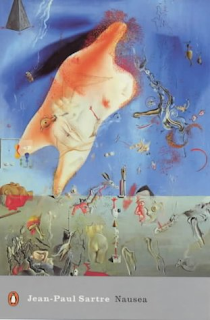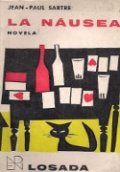
He was, in his own words, “radically free.” spoiled, free from super-egoesque rules and restrictions.

Sartre’s unshakeable (pathological, actually) Cartesianism, broke up his metaphysical romance with Merleau-Ponty.And they are riding on a few powerful ur-rails: There are a few insights the young Jean-Paul Sartre stumbled upon back in the late 1930s when he wrote the slender novel that would one day win him a Nobel Prize he chose to reject. Just why is this? Couldn’t Sartre simply face the ugly underbelly of meaningless reality (life, self, others, etc.) with a sense of humor? In a word-no. But nausea is a perspective which makes him (or rather his literary avatar, Roquentin) sick. Perhaps, perhaps not-and we’ll return to that idea a bit later. Venkat muses about Sartre’s Nausea seen as a perspective on mindfulness. You may want to read the Wikipedia entry about the book, linked above, for context first. So I asked her to do a guest post highlighting some possible connections worth exploring. suggested a connection between Sartre-nausea and the idea of mindfulness, which further intrigued me. Christina, who did her PhD work on Sartre’s theory of the imagination, posted a comment confirming my suspicion that there was indeed a relationship. In last week’s post I idly wondered about whether the notion of ‘future nausea’ that I talked about had any relationship to the term in the sense of Jean-Paul Sartre’s famous 1938 novel, Nausea.

This is a guest post by Christina Waters, who writes about art, wine, and food for the greater Bay Area community at and teaches Critical Theory and wordplay at the University of California, Santa Cruz.


 0 kommentar(er)
0 kommentar(er)
